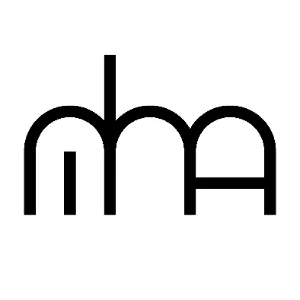Cœur Tagesbar
Martino Hutz Architecture
ARCHITECTS
Martino Hutz Architecture
LEAD ARCHITECTS
Martino Hutz
PHYSICAL MODEL
Charlotte Huber
VIDEOGRAPHY
Dominik Kreitmeir
LIGHT CONSULTANT
Ingo Kalecinski
MANUFACTURERS
HAY furniture, MUUTO Furniture
DESIGN LEAD, PHOTOGRAPHY
Andras Peter Domokos
AREA
62 m²
YEAR
2023
LOCATION
Munich, Germany
CATEGORY
Restaurants & Bars, Restaurant & Bar Interiors
DESCRIPTION
The design for Cœur Tagesbar was based on a simple brief from the clients: to bring out the best in a small, complex, and cramped space. We have found our answer through a biological phenomenon, differential growth. As per the principle: a limited area is optimally used through a special cell division.
CONCEPT
How to maximize the use of limited space? Both conceptually and visually, differential growth is used as a key element in the restaurant. The growth pattern follows a clear mathematical system, even when it appears to be random.
This system is based on an algorithm modeled after natural occurrences and simulated using parametric software. The mathematical understanding of growth evolution was used not only for the light installation as the centerpiece but also for smaller artifacts located on both floors.
A similar idea is applied to the interior cladding around the counter. Random patterns or streaks in vivid color variations are created through the chromatization of steel panels, making the contours of the space disappear.
ARCHITECTURE
The ground floor public area is divided into three zones: a covered outdoor terrace, a dining area by the façade that opens to the outside, and a sociable open bar.
Since there is little daylight at the back of the bar, a clear spatial separation was created between the two interior zones. The "room within a room" replaces the missing natural qualities with a unique ambiance.
The chromated steel panels have gradients and colors that result from the manufacturing process and add to the uniqueness of the material. The wall cladding turns the back room into a place with numerous spatial experiences through an explosion of colors as the only non-monochromatic element of the project.
In addition, the bistro plays with space, views, and reflections. Mirrored surfaces and artifacts are installed to expand the compact footprint visually. Different angles, reflections, and counter-reflections create endless variations of views, experiences, and interactions.
The combination of the stainless-steel counter and the light installation above, which is surrounded by chromate steel panels, is the centerpiece of the design. The hemispherical light installation is placed above the "open bar" and its reflection appears as a sphere.
Guests recognize a whole sphere and so the illusion of a room with double height works seamlessly. The sphere is created from a 28-meter-long, specially cut fabric, which is mounted along a plan also following a differential growth pattern. Three integrated light sources create individual lighting moods.
The counter is placed longitudinally to the space, abolishing the boundary between guests and staff. Two custom-made, 3D-printed pendant lights carry on the language of both the sphere and the growth pattern.
Walking up the steps to the vestibule, guests come across another half-circular growth pattern, complemented by the mirrored wall cladding to create a full circle.
The atmosphere created in the day bar has a pronounced impact on its immediate surroundings: a welcoming and relaxed atmosphere during the day, and a mysterious and intimate ambiance at night.

























